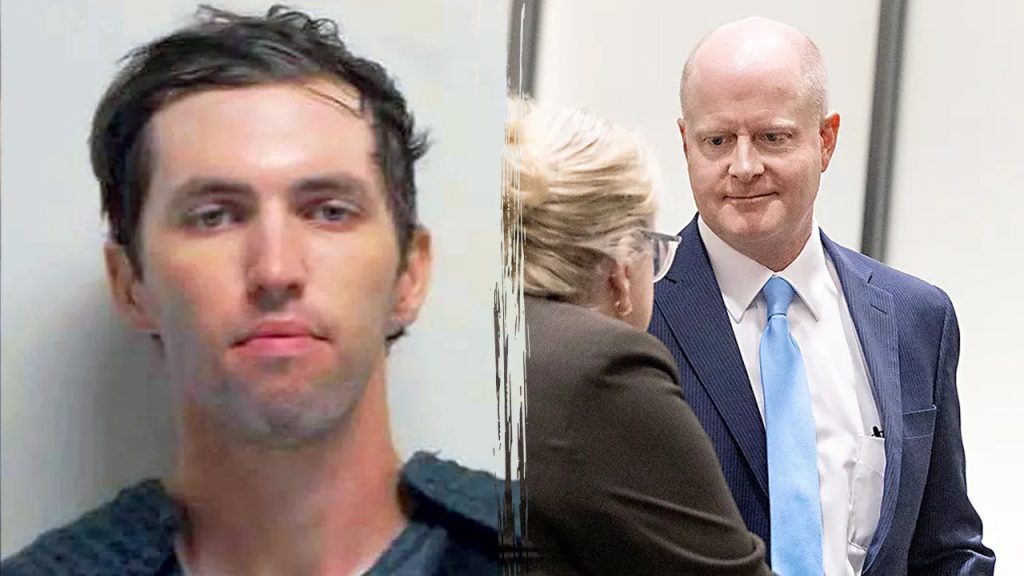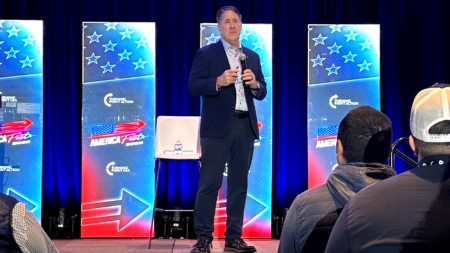Legal Expert Offers Insights into Charlie Kirk Murder Case
In the quiet city of Provo, Utah, a legal drama unfolds that has captured national attention. The capital murder case against Tyler Robinson, the alleged assassin of Turning Point USA founder Charlie Kirk, continues to develop behind a veil of legal procedure and strategic maneuvering. Randall Spencer, a seasoned criminal defense attorney with extensive experience in homicide cases, recently shared his perspective on the case with Fox News Digital. His insights illuminate the delicate balance between public interest and the constitutional right to a fair trial that sits at the heart of the American justice system. Spencer emphasized that maintaining confidentiality is crucial in high-profile cases like Robinson’s, noting that premature disclosure of evidence could contaminate the jury pool and compromise the defendant’s constitutional rights. “There needs to be an element of confidentiality of the evidence in order to protect the jury pool,” Spencer explained. “If the prosecutor or the defense is leaking quote-unquote evidence to the public… that may inhibit Tyler’s right to a fair trial.” This careful management of information serves a vital purpose: ensuring that potential jurors form opinions based on evidence presented in court rather than incomplete or unofficial information circulated through media channels.
While it’s too early to predict the exact defense strategy Robinson’s legal team will employ, Spencer outlined several possibilities. One potential approach might involve asserting factual innocence—claiming Robinson wasn’t the shooter—though Spencer considers this less likely than challenging the aggravating factors that elevate the charge to capital homicide. A more probable strategy, according to Spencer, would focus on disputing whether “the defendant’s alleged actions had a high probability of causing the death of someone other than Charlie Kirk.” Successfully challenging this aggravating factor could reduce the charge from capital homicide to standard murder, significantly affecting potential sentencing outcomes. Additionally, the defense may scrutinize how evidence was gathered in the early, intense phases of the investigation, when multiple agencies worked quickly to build their case. Spencer suggested that in the urgency of the moment, some evidence might have been collected without proper adherence to warrant procedures—potentially creating openings for the defense.
The scale of this investigation presents unique challenges for Robinson’s defense team. With “hundreds and hundreds of law enforcement officers, both at the state and federal level” involved in the case, the volume of discovery materials is overwhelming. Every report, every witness contact, every piece of evidence—regardless of seeming significance—must be thoroughly reviewed by the defense. This mountain of information requires meticulous examination to construct a coherent defense strategy. Meanwhile, Robinson’s conspicuous absence from public court appearances following his initial appearance has raised questions. Spencer attributes this to strategic image management rather than procedural necessity. After Robinson was first seen wearing a suicide-prevention garment—”not a real flattering look,” as Spencer put it—his defense team likely sought to prevent that unflattering image from becoming the enduring visual representation of their client. “You’ve got to start from the beginning to do all that you can to protect the public image of your client,” Spencer explained, noting that in high-profile cases, “every action is going to be scrutinized.”
Beyond the immediate legal defense, Spencer revealed that in capital cases like this one, defense teams typically begin mitigation work immediately. This involves hiring specialists who conduct exhaustive investigations into the defendant’s life history, reaching back to childhood to identify traumatic experiences, mental health issues, or patterns of abuse that might help humanize Robinson to a jury should the case reach the sentencing phase. “These experts conduct deep investigations into the defendant’s life, going back as far as birth, looking for trauma, mental health issues, or abuse that could help humanize the defendant to a jury,” Spencer explained. The mitigation specialist might also examine whether Robinson experienced persistent bullying or other social pressures that contributed to his alleged actions. This background work serves a dual purpose: preparing for potential sentencing while also informing the broader defense strategy.
The court of public opinion plays a significant role in high-profile cases, and Spencer acknowledged its importance in defense preparation. “When I’ve handled high-profile cases in the past, I’ve wanted to have an idea of what the public is saying so that I could understand my jury pool,” he said. This awareness helps defense attorneys craft arguments that will resonate effectively with potential jurors, even if monitoring public sentiment can sometimes be personally difficult for the legal team. Looking ahead, Spencer anticipates that Robinson’s defense may request a change of venue to improve chances of selecting an impartial jury. “I foresee a possibility that the defense may say that this homicide happened in Utah County… and therefore… argue that we need to change the venue of this case,” he noted. Whether such a motion would succeed remains uncertain, but Spencer considers it a likely strategic move given the intense local interest in the case.
As this high-stakes legal battle continues to unfold, every aspect—from evidence handling to media strategy—will face intense scrutiny. The case sits at the intersection of criminal justice, constitutional rights, and public interest, highlighting the complex challenges inherent in America’s legal system. Spencer’s final assessment acknowledges both the extraordinary nature of the case and his professional respect for how Robinson’s defense team has managed their responsibilities thus far: “This case is obviously a very high-profile case and so every action is going to be scrutinized. I think that the defense is doing a good job in trying to protect their client in every way that they can.” As the preliminary hearing approaches and the case inches toward trial, the nation watches to see how justice will be served in this tragic and politically charged murder case.







